In business, we often hear the saying “time is money”, but this thinking can actually be incredibly toxic. People are beginning to see just how destructive the “time is money” mindset can be. Many employees are burning out physically, mentally, and emotionally. That’s why It’s high time we start managing our time differently.
Time is precious, but we shouldn’t only use it to enrich ourselves financially. Instead, we should all aim to spend our time as meaningfully as possible, doing things that matter to us on a personal level too. To do that, we need to strike a healthy balance between work and life, ensuring that there’s enough time in each and every day for both.
Easier said than done, right? That’s why we’ve put together over 30 time management tips, strategies, and healthy habits for you to learn from. We’ll cover the best time management tips to succeed in work, school, and personally.
In this post, you’ll find time management tips to:
- Work smarter
- Email more effectively
- Study better
- Be more successful in your life
- Reduce stress
- Support your mental health
If you want to leave behind the feeling of procrastination paralysis and start optimising your organisational skills, keep reading!
Time Management Tips to Increase Work Productivity
- Use a task management tool
- Eliminate distractions
- Delegate tasks
- Take work breaks
- Manage communication
- Invest in your time management skills
Time management is critical for the workplace because it allows you to be more efficient and productive, which can lead to increased success and career advancement.
When you’re able to effectively manage your time as an employee, you’re able to prioritise your tasks, set realistic deadlines, and make better use of your time.
More about these 6 tips to achieve work productivity:
1. Use a task management tool
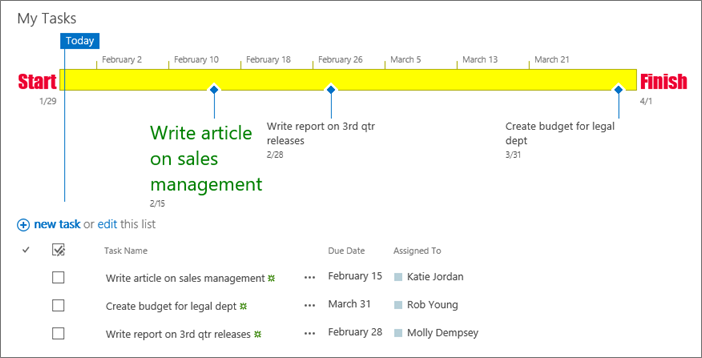

To help you organise your work tasks, and deadlines and keep track of your progress, you can utilise task management tools such as:
- Microsoft Outlook
- Microsoft To-Do
- Microsoft Planner
- Trello
- Asana
- OneNote
If you prefer the paper approach, you can use a journal to write a to-do list. Visualising your workday is one of the strongest strategies for time management.
2. Eliminate distractions
Identify and eliminate sources of distraction. These include social media, email, or other unnecessary interruptions.
We recommend the use of an app or browser extension that does the blocking for you, so you don’t have to worry about being tempted by distractions until your work is completely done.
3. Delegate tasks


Don’t be a martyr if you don’t have to be. If you are in a position to do so, delegate tasks to others to free up time for more important responsibilities. This can help you be more efficient and effective at work.
Ensure that you communicate clearly with your coworkers about the delegated tasks and make plans to check in on the work with them at the end of your workday.
4. Take work breaks
Don’t be afraid to take regular breaks and step away from your desk every now and then.
You may only be assigned a certain amount of break time, but something as simple as taking a moment to stretch and go for a short walk around the office will be beneficial for both your mental health and your productivity.
Quick break tips when you can’t leave the office
- Stand up from your chair
- Do simple work stretches at your desk
- Look away from your screen for a minute
- Enjoy a snack or beverage at your desk
- Use a mindfulness app to practice a short round of breathing exercises
5. Manage communication
To minimise distractions, set specific times during the day to check and respond to emails and other forms of communication.
If your workplace uses Microsoft Project, Slack or another similar communication platform, you can set your status to ‘Do Not Disturb’ and change your notification settings to only alert you about direct messages or certain channels.
6. Invest in your time management skills


Time management is a skill, and just like any other skill, you can develop, grow and get better at it with professional coaching.
For example, there are time management courses for emails that can help you manage an overflowing Inbox and make the most of the task and scheduling tools at your disposal.
Or, you may find it helpful to learn skills for leading productive meetings to make the most of your work time. Improving your time management skills will help you get on top of your workload and achieve more with your time.
Time Management Tips for Effective Emails
- Use filters and labels
- Schedule email time
- CC and BCC
When it comes to emails, effective time management can help you quickly and easily identify and respond to important emails, which can improve your communication and collaboration with colleagues, supervisors, and clients. It also helps to reduce the amount of time spent on emails, avoiding constant interruptions that can lead to decreased productivity and increased stress.
More about the 3 tips for effective emails.
7. Use filters and labels
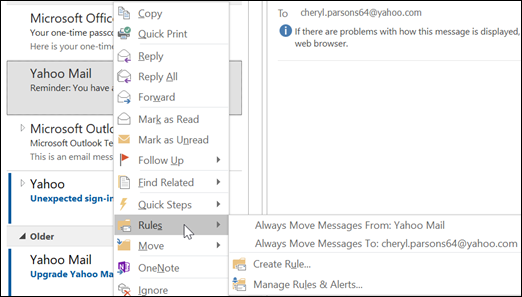

You can organise your emails by using filters and labels to automatically categorise all incoming messages. This will help you quickly find and respond to important emails, instead of using the search function or scrolling to find the needle in the digital haystack.
8. Schedule email time
Set aside specific periods of time throughout the day to check and respond to emails and messages, rather than constantly checking them throughout the day and pulling your attention away from other important tasks.
Muting non-urgent notifications will reduce interruptions and may even result in more effective communication, as you won’t be allowing time for redundant back-and-forth conversations.
9. CC and BCC
Strategically use the CC and BCC fields to keep other necessary parties in the loop and save time on informing multiple people about the same project.
- CC field lets all recipients know who is also relevant in the potentially ongoing conversation.
- BCC field is better suited for a larger list of contacts as it can reduce unnecessary replies and therefore reduce more time and effort put into workplace communication.
Time Management Tips for Studying
- Create a study schedule
- Shorten your study sessions
- Collaborate with others
Many students find it difficult to manage their time effectively when studying. However, there are ways to spend less time studying and achieve higher results.
Here’s more information about the 3 simple tips that any student can easily follow.
10. Create a study schedule
Plan out your study time in advance, and make sure to schedule regular breaks. This can help you to stay on track and make the most of your study time while avoiding the stress of last-minute, missed deadlines.
11. Shorten your study sessions
Instead of trying to cram all of your studying into one long session, try breaking it up into shorter, more frequent study sessions. This can help to prevent fatigue and improve retention.
12. Collaborate with others


If you have friends or fellow students who are studying the same subject, you can take the opportunity to collaborate and study together. You can hold each other accountable for meeting deadlines, share useful resources, and break down larger projects into smaller individual tasks.
Just make sure your time remains productive, and the people you choose to work with are supportive – not distracting!
Time Management Tips to Succeed in Your Personal Life


- Wake up earlier
- Get a full night of sleep
- Make your work space comfortable
- Use tech to your advantage
- Be mindful with your “Me Time”
- Set clear goals and priorities
- Create a To-Do list
- Use a planner or calendar
- Avoid multitasking
- Review and adjust
Time management is a crucial skill for anyone looking to be more successful in their personal and professional life. Whether you’re a busy student, a working professional, or a stay-at-home parent, there never seems to be enough time in the day to accomplish everything you need to do. That’s why you need to start working smarter, not harder.
Here’s an in-depth look at the above 10 time management tips to help you make the most of your time, so you can achieve your goals and live a more fulfilling life.
13. Wake up earlier


Ever heard the phrase, “time is one of life’s greatest equalisers”? We all get the same number of hours in a day, but it can often feel as though some people have more control over their schedules compared to others.
Effective time management is all about taking the power back and putting it in your hands. Sure, you still have a job to work around and other responsibilities to factor in. Regardless of the priorities in your life, strong time management skills will maximise your potential and boost your efficiency.
In fact, you can start with the earliest possible decision of your day: choosing to stop hitting the snooze button on your alarm.
Sleeping past your alarm for another 15 minutes might not seem like a very significant choice. However, all that wasted time adds up in the long run.
To make the most of the hours you have each day, it’s best to develop and maintain a regular schedule and get between 7-9 hours of sleep each night. It’s better for your health and day-to-day readiness, helping you wake up feeling refreshed instead of sluggish. You can use all that extra time on self-care activities such as working out, meditating, or even pursuing a side project or new hobby.
14. Get a full night of sleep
There’s no use in getting up early if you’re just going to be sleep deprived. Getting a full night’s sleep of 7-9 hours is incredibly important for your physical and mental well-being. When we sleep, our body repairs and rejuvenates itself, allowing us to wake up feeling refreshed and ready for the day ahead.
Adequate sleep also plays a critical role in maintaining your cognitive function, which means you’ll be more alert and focused. By getting 7-9 hours of sleep on a regular basis, you’ll be ready for the day ahead and all of its tasks.
“Why try to boil a pot of water on medium heat when you could do so in half the time on high? People often tell me that they do not have enough time to sleep because they have so much work to do. Without wanting to be combative in any way whatsoever, I respond by informing them that perhaps the reason they still have so much to do at the end of the day is precisely because they do not get enough sleep at night.”
-Dr Matthew Walker, author of “Why We Sleep”
15. Make your work space comfortable
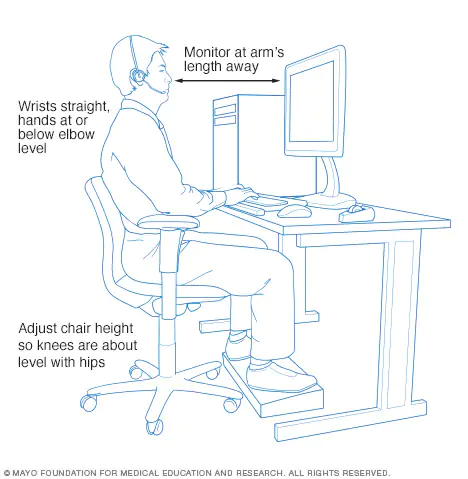

People aren’t usually aware of it, but comfort can play a large part in staying focused and productive during the day. Many workers spend a lot of time making themselves comfy at their desks, adjusting uncomfortable seats or getting up every so often for a drink or snack.
Small distractions like these don’t just take up large chunks of time; they also break your focus and make it more difficult to return to what you were doing. That’s why you should make sure that you already have everything you need before sitting down to work, whether it’s your morning coffee or any necessary supplies for your tasks.
You can also make your workstation more comfortable by investing in a stand for your laptop, an ergonomic cushion for your chair, and other quality-of-life products.
16. Use tech to your advantage
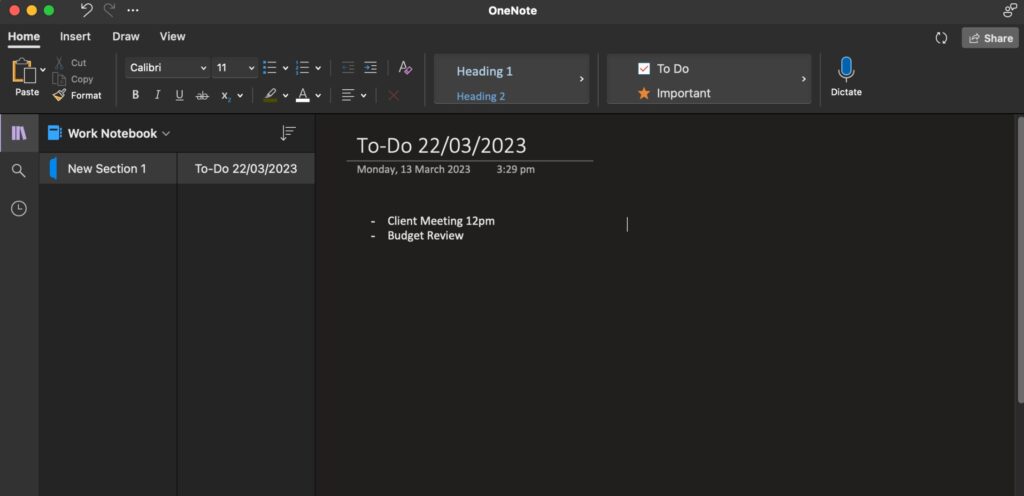

One of the biggest perks of living in the twenty-first century is having convenient access to various high-quality time management tools and technologies that can make our work easier. From timekeeping software that lets you keep track of your hours to apps that remind you to take breaks, there’s no reason why you shouldn’t take advantage of tech to achieve a healthy work-life balance.
For example, if you struggle with staying away from social media during your work hours, there are browser extensions available to block those sites for a set period of time. If you have a hard time remaining focused on your work, a Pomodoro timer may be the solution you’re looking for; they are designed to break your work down into 25-minute intervals with short breaks between each session.
There are several types of time management and distraction-minimising apps and browser extensions that you can use across multiple devices. Placing self-imposed time limits on yourself and your work and allowing consistent breaks can reduce burnout and make your workflow more efficient, particularly for those working from home.
Here are some apps and softwares that can help with your time management:
- Microsoft ToDo. A task management app for creating lists, setting reminders, and tracking progress
- Asana. A cloud-based task management app that allows teams to collaborate and track project progress
- Microsoft Outlook. A popular email client that also includes a calendar and task management features
- RescueTime. A time tracking app that helps you monitor how you spend your time on your devices and provides insights on how to improve productivity
- Microsoft OneNote. A note-taking app for organising notes and tasks in different notebooks and sections
17. Be mindful with your “Me Time”
Most people don’t consciously schedule enough time for themselves. Practising mindfulness can greatly improve time management and efficiency because it helps you focus your attention and increase your awareness of the present moment. When we’re mindful, we’re able to let go of distractions and be fully engaged in the task at hand.
Mindfulness can also help to reduce stress and anxiety, leading to more productive and efficient work. A study examining the effectiveness of mindfulness in the workplace found “greater increases in team climate, organizational climate and personal performance” after mindfulness training was conducted.
Additionally, it can also improve your decision-making by allowing you to consider your options more clearly and make decisions more deliberately. By taking a few minutes daily to practice mindfulness, you’ll gain a greater sense of control over your time and be more productive in the long term.
It can be something as easy as savouring every bite of food at lunch instead of scrolling mindlessly on your phone as you eat. It could also be as easy as clearing your mind of any work-related thoughts as soon as you step into the shower. It’s a way of practising self-care that can lower your stress levels and give you more clarity at work, allowing you to manage your time better at the office.
18. Set clear goals and priorities
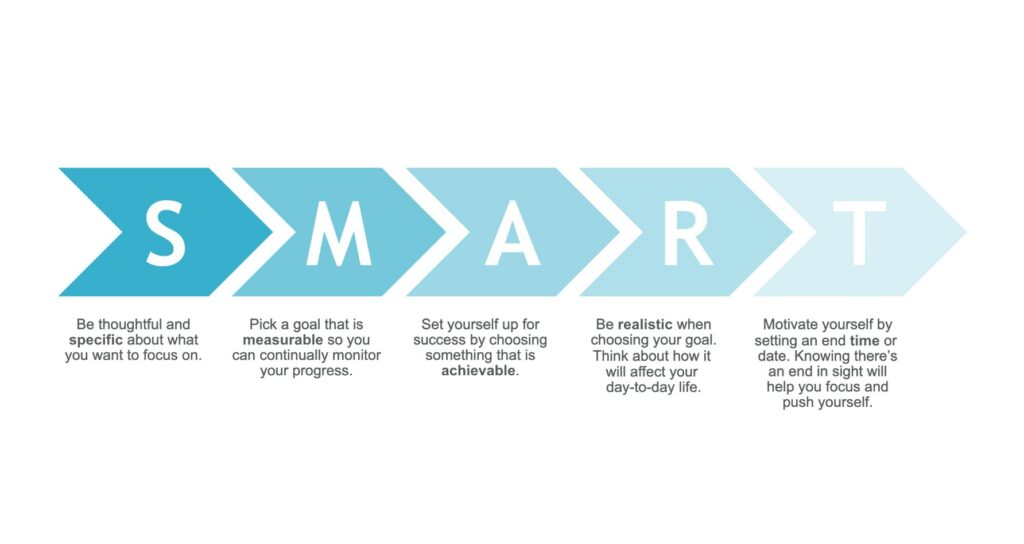

Without clear goals and priorities, it can be easy to become overwhelmed by the many tasks and responsibilities demanding your attention. By taking the time to reflect on your priorities and set goals, you’ll have a greater sense of purpose and direction. What’s more, you’ll stay motivated and make better use of your time, as you’ll be able to measure your progress and stay accountable for your projects and deadlines.
Without clear goals, you may find yourself spending time on tasks that don’t take priority or don’t align with your goals.
This is why we recommend creating SMART Goals: Specific, Measurable, Attainable, Relevant, and Timely. These goals should be well-defined and realistically achievable with specific criteria for success and a clear timeline for completion.
Example of a SMART goal for someone starting their own side business
- SPECIFIC: I will start my own business selling homemade jewellery.
- MEASURABLE: I will spend at least one hour a day planning, promoting, and creating products for my business.
- ATTAINABLE: I have the resources, skills, and support necessary to begin working on this business.
- RELEVANT: I love creating jewellery and sharing my products with others, and it would bring in extra income on the side.
- TIMELY: If I start tomorrow, I can have an entire line of products ready to ship within a month.
19. Create a to-do list


Creating a to-do list is an important aspect of time management because it allows you to break down your priorities into smaller, more manageable tasks. Just by writing down your goals in smaller chunks and visualising them, your tasks will feel infinitely more achievable and less overwhelming.
Some people greatly benefit from creating separate daily, weekly, monthly, and even yearly lists. Writing down your goals and separating them by realistic time periods will reduce the likelihood of becoming overwhelmed by your tasks. We recommend that you start simply with one type of to-do list that best suits your current needs and goals.
20. Use a planner or calendar
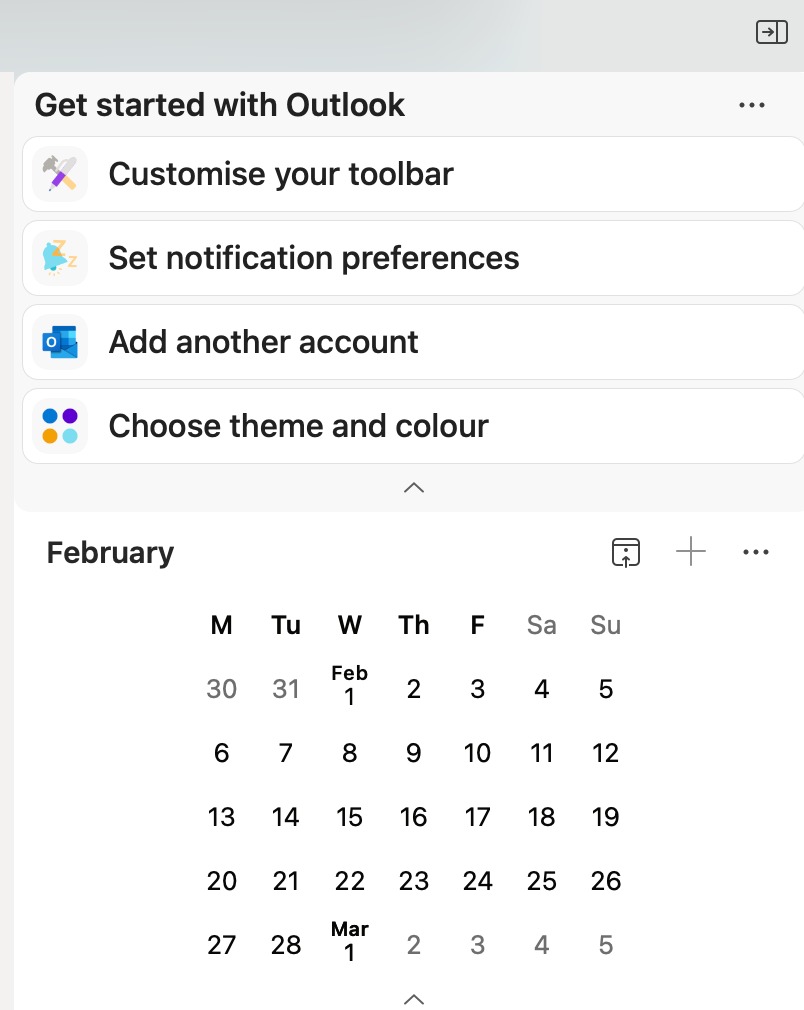

Having a clear and visible overview of your schedule helps you plan ahead and make better use of your time. This is why we recommend having a planner or calendar, such as Microsoft Planner. It can keep track of deadlines, appointments, and other important dates. You can also schedule time for breaks, personal time, and leisure activities to ensure a healthy work-life balance.
By blocking off specific time slots for different tasks, you can improve your focus on a singular goal and avoid inefficient multitasking. Scheduling your days and creating time blocks puts your priorities into perspective once you learn how to use a powerful calendar tool.
Next time you receive a deadline from work or make an appointment, note all of the details in your own planner or calendar and place reminders on your devices. You’ll manage your time much better when you know exactly what needs to be done and when.
21. Avoid multitasking
When we multitask, our brain is constantly switching between different tasks, making it difficult to fully focus on any one task.
Multi-tasking can lead to:
- Increased errors
- Decreased quality of work
- Longer completion times for tasks
- Increased mental load and pressure
Multitasking can also negatively affect our cognition, which leads to fatigue and exhaustion at a much faster rate. Some studies have even shown that multitasking lowers your IQ.
Furthermore, it’s difficult to be fully engaged and mindful in a task when there are other tasks or distractions pulling your attention in multiple directions. This makes it harder to truly enjoy or appreciate what you’re doing, leading to feelings of dissatisfaction and burnout.
By focusing on one task at a time, you’ll be able to work more efficiently, produce higher quality work, and ultimately achieve your goals more quickly.
22. Review and adjust
It’s important to regularly review your progress and evaluate how well you’re using your time and resources. This can help you to identify areas where you may be falling behind, or where you may need to make adjustments to be more efficient.
Additionally, reviewing and adjusting your work goals can help you stay motivated and engaged. When you can see your progress and the work that you’ve completed, it can boost your motivation and inspire you to keep working towards your goals. Setting goals also becomes easier, with regular reflection and adjustments, resulting in more achievable and relevant goals.
This skill heavily ties into mindfulness, so we recommend taking the time to explore both and making them part of your daily or weekly routine.
Time Management Tips to Reduce Stress
- Prioritise your tasks
- Break down tasks
- Use a timer
- Take regular breaks
- Learn to say “no” and set boundaries
When you’re able to effectively manage your time, you’re able to prioritise your tasks, set realistic deadlines, and make better use of your time. This can help you to feel more in control and less overwhelmed by your responsibilities, reducing stress and increasing the quality of your work.
Here are our 5 time management tips to reduce stress:
23. Prioritise your tasks
On a daily basis, identify what is most important and focus on those tasks first.
A numbered list ordered by priority will give you a clear view of the day ahead, reducing your stress and the likelihood of becoming overwhelmed.
To-Do:
Very Important Task- Important Task
- Regular Priority Task
- Low Priority Task
24. Break down tasks
Large tasks can feel almost impossible to overcome in times of stress, but breaking them down into smaller, manageable tasks can make them much more manageable and realistic.
Plus, checking off more tasks will be a strong source of motivation.
25. Use a timer
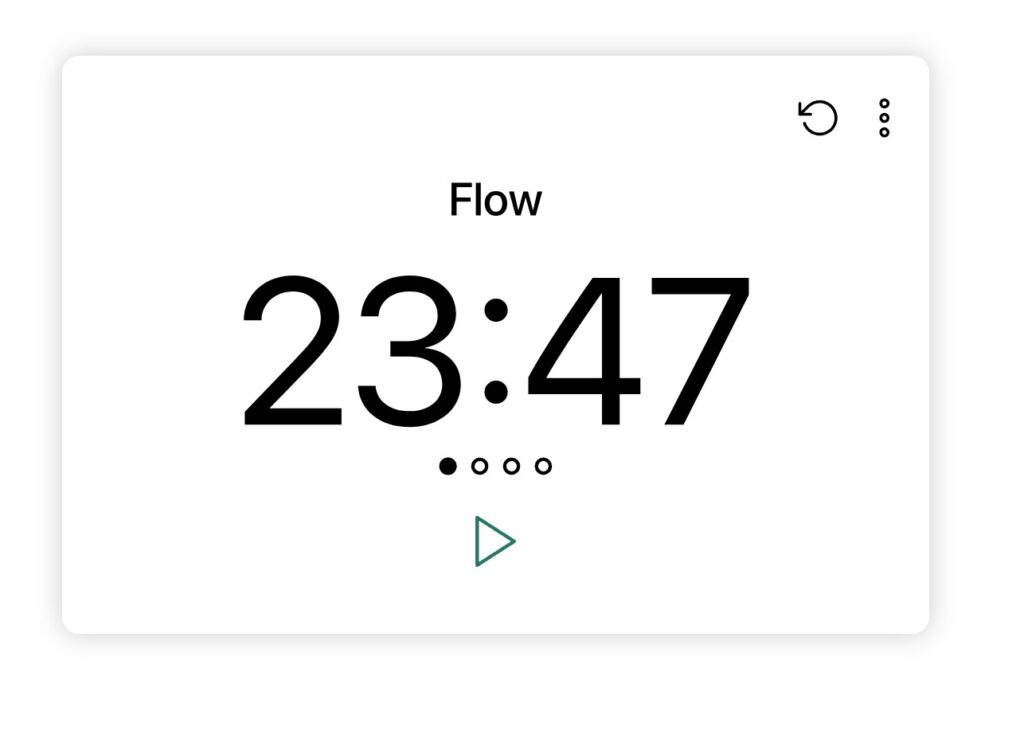

Setting a self-imposed time limit will allow you to focus on one task at a time, helping you stay focused and avoid getting bogged down in one assignment or project for too long. You can set a timer on your chosen device and receive a notification when it’s time to move on to the next job.
When taking this approach, it’s important to set realistic time limits and work within your ability. Don’t push yourself to speed through tasks, as this will only result in more stress.
26. Take regular breaks


Taking regular breaks can help to refresh your mind and reduce stress.
Use this time to stretch, take a walk or do something you enjoy. It’s important to rest your body and your mind so you can recover and be ready for the tasks ahead.
27. Learn to say “No” and set boundaries
Other people’s urgencies don’t have to be your emergencies, meaning that it’s okay to focus on yourself and say no to taking on more workload.
Setting boundaries can be particularly difficult for some people, but that’s okay! It’s a skill like any other. We also recommend that you try talking to your colleagues, friends, and family about your workload and see if there are any tasks you can reasonably delegate. Don’t feel guilty about reducing your own workload. It just means you have more time and energy to put into your biggest priorities.
Time Management Tips to Support Your Mental Health
- Prioritise self-care
- Manage your workload
- Create a positive environment
Good time management allows you to set aside time for self-care, relaxation, and mindfulness.
Let’s look further into our 3 tips for maintaining a healthy work-life balance, which is essential for maintaining your mental health.
28. Prioritise self-care
Self-care is easy to neglect when workloads get high. But you can’t pour from an empty cup, and managing large workloads or big projects while your mental health is strained is unproductive and quickly leads to burnout.
Make sure to set aside time for activities that support your mental health.
Activities to boost your mental well-being
- Running, walking, or cycling
- Stretching, pilates, or yoga
- Meditation
- Spending time with loved ones or friends
- Quality time with a family pet
- Hobbies or interests you may not normally make time for
With time for your own interests, you’re far less likely to experience mental fatigue and burnout.
29. Manage your workload
Be mindful of your workload and try to avoid overloading yourself. You can only do one person’s amount of work, and only have so many hours in the day, just like everyone else.
Set yourself up for success by staying on top of your workload and managing it when it becomes unrealistic.
Remember that it’s important to put yourself and your mental health first; try to look past any guilt you may feel for saying no to taking on extra work or asking for help.
30. Create a positive environment


Try to ensure that your work and study environment is a positive space that’s conducive to mental well-being. This may include having natural light, plants, and comfortable seating, as well as notepads and stress balls to give you healthy emotional outlets as you work.
Knowing how to manage your time and workload effectively is critical for creating your ideal life. These time management tips will improve your productivity and bring you much closer to reaching both your professional and personal dreams.
If you need professional business trainers to guide you on how to manage your workload effectively to strike that perfect work-life balance, book a coaching session with us or have a look at our Time Management courses. We can help you get back on top of your workload with skills and tools to work smarter, achieve more and get control of your to-do lists.
